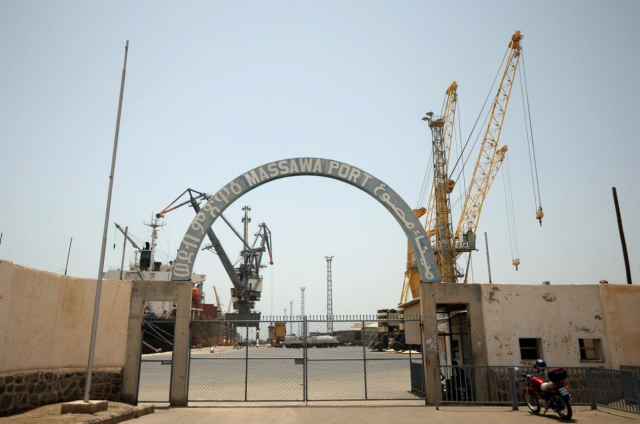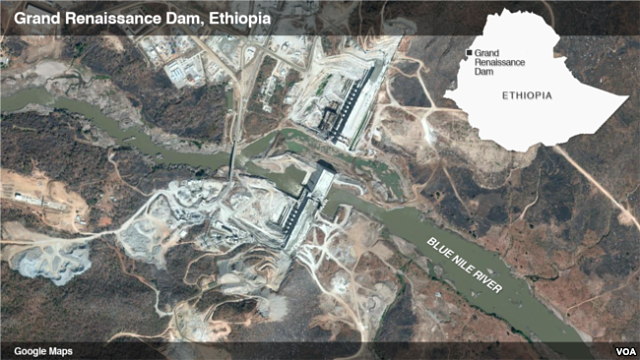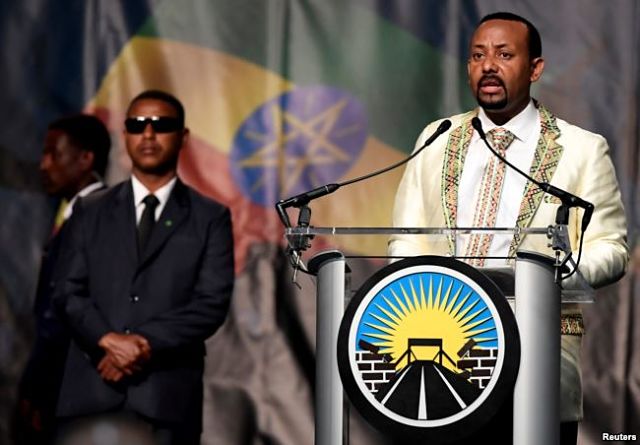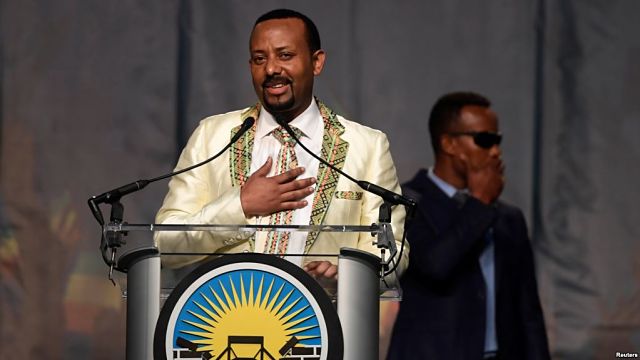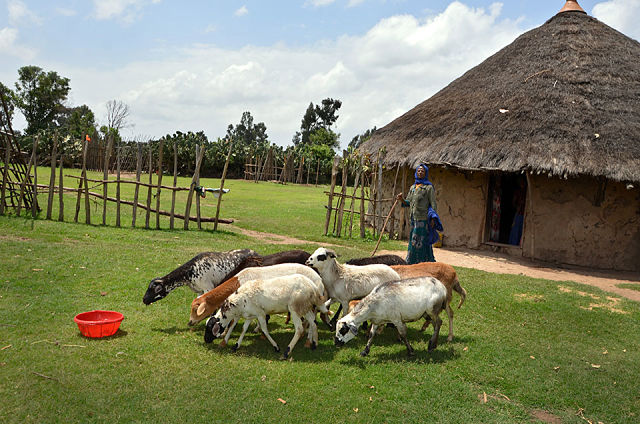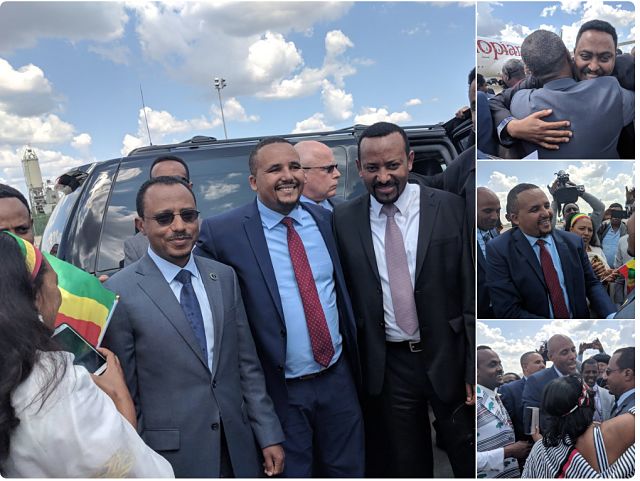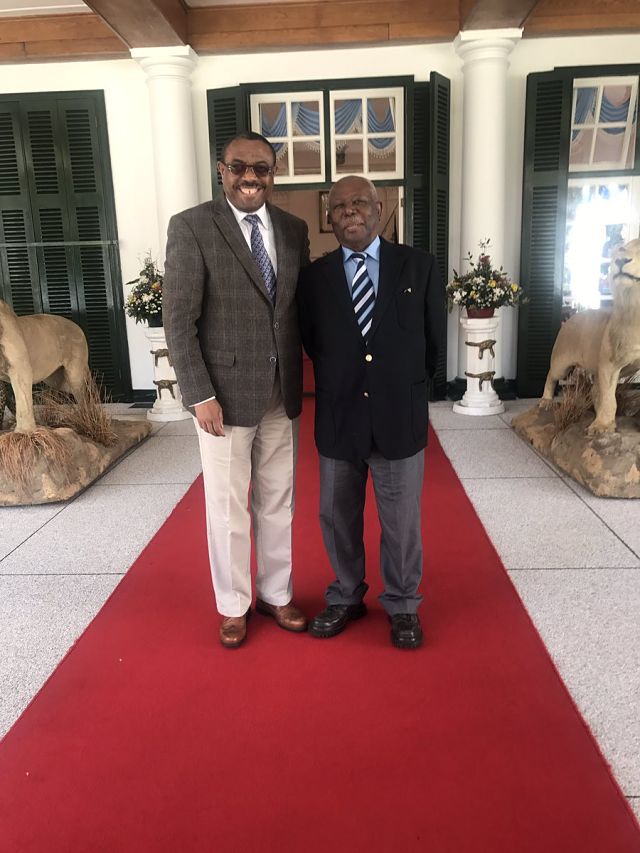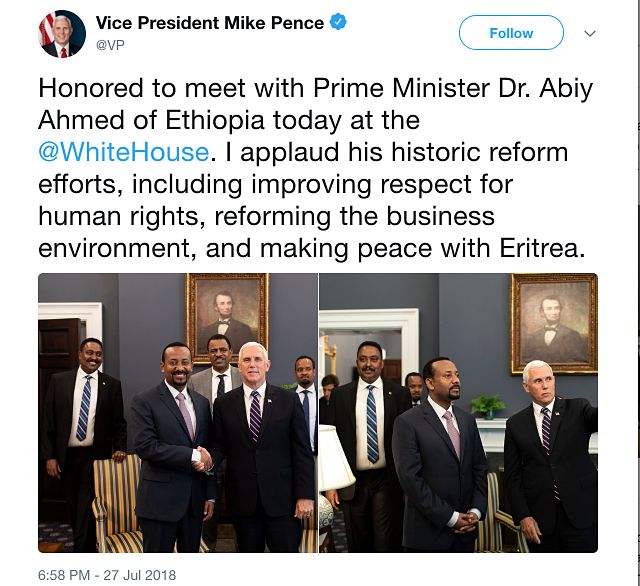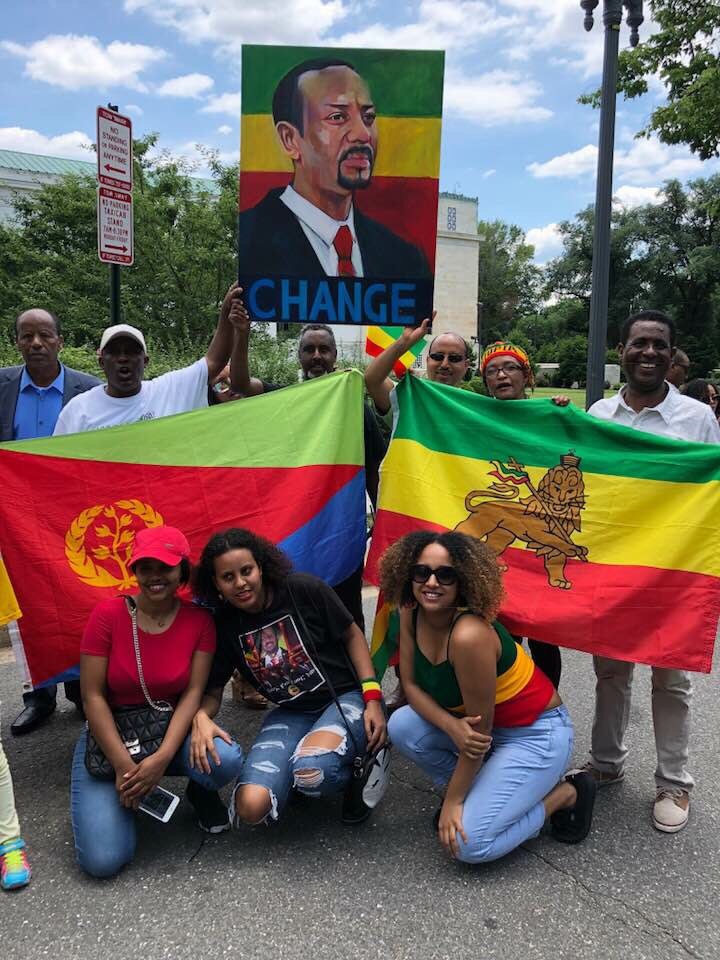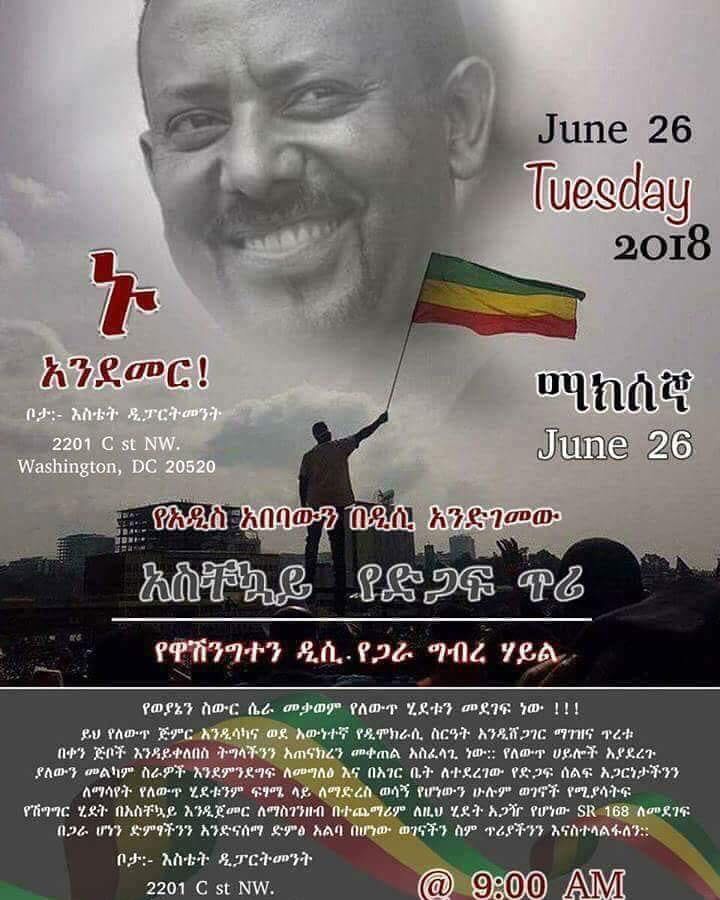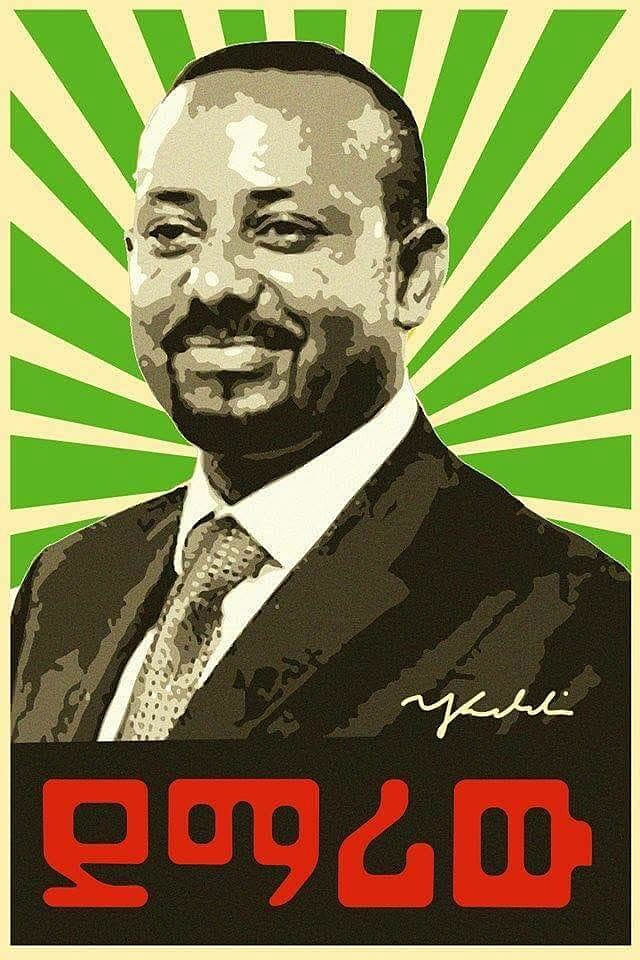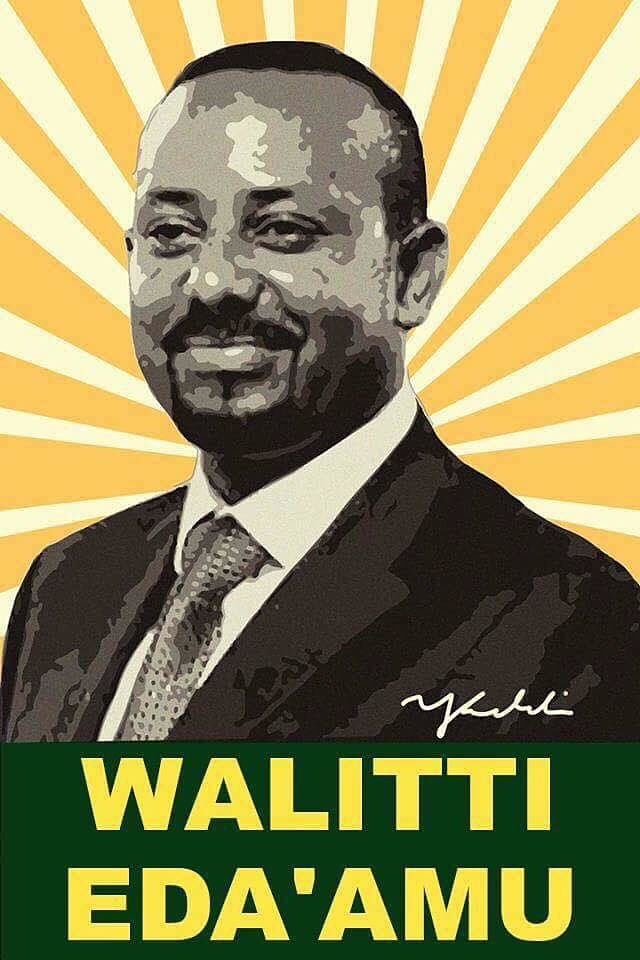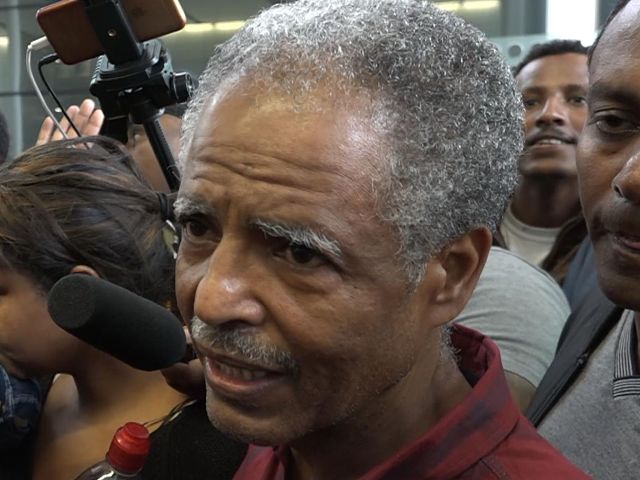U.S. Department of State
Press Availability
Rex W. Tillerson
Secretary of State
Addis Ababa, Ethiopia
March 8, 2018
MODERATOR: Would you join me to welcome the two foreign ministers. May we rise, please? I thank you very much. Ameseginalehu. Your Excellency Dr. Workneh Gebeyehu, foreign minister of the Federal Democratic Republic of Ethiopia; Your Excellency Rex Wayne Tillerson, U.S. Secretary of State; ambassadors, ministers, all protocol observed, welcome to Addis Ababa, the political and diplomatic hub of Africa.
As His Excellency Minister Tillerson said during his speech at George Mason University, Africa is part of the future. It’s a continent in which 70 percent of its population is youth. This population, Your Excellency, is an opportunity and, again, a challenge. Ethiopia, as a UN-U.S. partner and longer in the continent, I believe this extraordinary visit will further deepen the ties of Ethiopia and the United States, one of the oldest diplomatic ties.
According to our program, His Excellency Dr. Workneh and His Excellency Rex Tillerson will highlight the gist of their discussions to the media, and that will be followed by questions from media houses. Media houses, make sure that you have one questions. If it is more than one, the two principals will ask – will respond to one question only.
I thank you very much. Excellency Dr. Workneh.
FOREIGN MINISTER WORKNEH: Thank you very much. Thank you. Good afternoon. The house is full. Your Excellency Rex Tillerson, Secretary of State of the United States of America, we are delighted to have you here in your visit to Africa as a first stop here in Addis Ababa. United States and Ethiopia have a century-old relationship, a relationship which, time-tested, always a relationship.
So Your Excellency, your coming here is a testament for this strong relationship. I and Excellency Secretary discussed extensive issues bilaterally. We discussed about our regional issues – the regional security, international issues, international politics – at the same time, how to boost our economic ties and investment between the United States of America and Ethiopia.
We touched about the issue of South Sudan and Somalia, which we are working very closely together. And also, we discussed other very important security concerns that we have in common. And also, I explained to Excellency about our situation, the country’s situation, the transition that we are in the process, and we are very thankful that the United States of America is a close friend, which – working with us in all aspects, especially in economic areas. So it was very cordial, candid, and very fruitful discussion. And thank you so much, Your Excellency.
SECRETARY TILLERSON: Well, thank you as well, Excellency, for the warm welcome and hospitality. And we just had a very enjoyable lunch where we were able to continue our discussion with a number of members of both of our delegations, which is always useful to gain a greater understanding of each other. I also want to welcome both the local press and the foreign media as well to this event. And we do appreciate our partnership, and particularly at such a critical time for Ethiopia. I also look forward to my meeting later today with the prime minister.
And I’m quite excited to be in Ethiopia. This is my first visit, and certainly this was an important place to start my trip as Secretary of State to the continent, in large measure because of the more than 100-year diplomatic relationship between Ethiopia and the United States. And it’s been an enduring relationship; as the foreign minister described it, an all-weather relationship, that even when storm clouds gather we remain friends and have always worked through challenges together.
I also want to acknowledge again today this being International Women’s Day and an opportunity to recognize and celebrate the social, economic, cultural, and political achievements of women across the world, and note the role of women in Ethiopia in promoting economic growth as well. It’s quite evident the prominence that women already occupy in government, but in economics as well, strengthening the rule of law, the important role they play in human rights and building and strengthening a civil society that will thrive.
As I indicated, the United States and Ethiopia are longstanding partners. I was glad to have the opportunity to exchange views with the foreign minister on many areas of mutual interest that we share. We recognize and share concerns expressed by the government about incidents of violence and loss of life. We do firmly believe the answer is greater freedom for people, not less. We recognize the transition that is underway in Ethiopia, the first-ever voluntary transfer of power. And I view this as a very positive symbol of the strength of this very young democracy in Ethiopia, a peaceful transition of power.
Given recent events, the United States has expressed our concerns with the government’s decision to impose another state of emergency, because it does put restrictions on fundamental rights like assembly and expression. We also discussed in our exchange the importance of ensuring that security forces remain disciplined in maintaining law and order, preventing violence. They have a very difficult challenge on their hand. This is – this tests their own discipline as well.
We firmly believe that democratic reform, economic growth, and lasting stability are best addressed through an inclusive political process, rather than through the imposition of restrictions. And we encourage the Ethiopian people as well to maintain patience, maintain support for your government through this change, through this transition, but also in pursuing this journey of democracy, which takes time and effort. Democracy is not easy. It takes a lot of work. But staying with it, lasting change will come about, and to not resort to violence. Violence is simply never a solution.
I was able to raise these concerns because of this very, very strong relationship that exists between Ethiopia and the United States, and we share so many values as partners. We want Ethiopia as a country to succeed and prosper, and we’re confident that they will succeed and prosper, providing many, many economic benefits not just for the Ethiopian people, but for the neighboring countries in Africa, and ultimately for U.S. business interest as well.
We welcome the proactive steps that have already been taken with the release of thousands of prisoners, including journalists and political leaders, and we encourage additional concrete measures to allow greater political freedom of expression. As the seat of the African Union, Ethiopia plays a critical and significant role in leadership in the region throughout the continent and the world, and we appreciate its efforts for – to further our mutual goals of peace and prosperity on the continent. This is especially true of our shared security interests. As the largest contributor – Ethiopia is the largest contributor to UN peacekeeping operations – they play a vital role in AMISOM in Somalia, as well as peacekeeping efforts in Sudan and South Sudan. We have shared treasure together in trying to advance the cause of peace, and we have shared blood together in this advance for the cause of peace, and we acknowledge that.
Ethiopia’s influence in supporting the security of Somalia and Djibouti are particularly important at this time to keep global commerce routes open. These routes through the Red Sea affect billions of people around the world in terms of their economic stability. And we discussed the United States is eager to help Ethiopia liberalize its economy. We think it’s going to bring great opportunity and attract many business interests as they continue the process of reform and liberalization, strengthen its judicial and commercial institutions, and assist in humanitarian emergencies here and throughout the region, including the almost one million refugees that currently reside in Ethiopia. And we need to reside – recognize Ethiopia’s generosity in hosting those refugees.
The United States is a long-term friend and partner of Ethiopia. We look forward to working with you as the people of Ethiopia seek greater peace, democracy and prosperity, all of which we know you will succeed at achieving. Thank you.
MODERATOR: Thank you so much, excellencies. Now, back to the media. Tibebu Yared from EBC.
QUESTION: Thank you very much. I am Tibebu from EBC. My question goes to Your Excellency Mr. Tillerson. What is the purpose and, of course, the implication of your visit to Ethiopia at this particular time? Thank you.
SECRETARY TILLERSON: Well, as I indicated, this is a very, very longstanding relationship, more than 100 years. Ethiopia is a large-population country, they are an important security partner in areas that I’ve already touched upon, and we also see Ethiopia’s journey towards democracy – I think 27 years now, which is a long time, but it’s a young democracy, and as I indicated, democracies are challenging. It’s not easy to take a country forward as a democracy. And so we’re here also to support Ethiopia’s journey towards a democratic society and institutions.
But importantly, also, to have an exchange on additional steps that could be taken, what else can the U.S. do to be supportive and helpful of Ethiopia’s economic development. Ethiopia has a vibrant economy, but there’s a lot of potential that has yet to be realized in Ethiopia’s economy, and we think there are great opportunities for U.S. private sector engagement in supporting economic growth, creating jobs for these many, many millions of young people who are working hard at getting an education in school; now they want to have their opportunity for a future themselves. And so we would like – we want to be a part of that and hope to be a part of that.
So there are so many touch points where we share a common interest of security, stability for the region, which affects our security but also affects global security, and then opportunities for economic prosperity. And that’s the purpose of the trip, is to – for us to better understand how do we work together as partners to achieve what are really common aspirations.
MODERATOR: Next question, Sisay Woubeshet, Afro FM. I am trying to meet gender parity. (Laughter.)
QUESTION: Thank you very much. My question also goes to Secretary Tillerson. You came during the time of the second state of emergency here in Ethiopia, and what is your opinion towards the state of emergency, as many nations are opining on that? And how is the U.S. following the current political situation in Ethiopia and what role does it want to play? Thank you very much.
SECRETARY TILLERSON: Well, as I indicated, first and foremost, I want to acknowledge this voluntary transfer of power. We think that’s a very powerful symbol to the strength of the democratic process here in Ethiopia, and we think it’s important that the parliament, which has been elected by the Ethiopian people, decide who the next leadership be. That’s the way democracies should perform.
So I want to first acknowledge the very positive aspects of what is happening. I know it’s challenging for the country. It creates uncertainty. And that is the hard part of democracy. But we support this peaceful transfer of power.
As to the state of emergency, as I indicated, we believe ultimately giving people greater freedom gives them a greater investment in this democracy as well. And so while we appreciate the government’s responsibility to maintain control and not allow violence to break out and harm innocent people as well who may become victims of violence, it is important that that – that the country move on past the state of emergency as quickly as possible. We hope that that can occur. As I said, we’re encouraged that a number of steps have been taken to release large numbers of people who have been detained. That’s an important step. But the citizens of Ethiopia have a responsibility as well to behave in a nonviolent way, and we hope the government allows that nonviolent expression to take place. This is all part of understanding how to best serve the citizens of Ethiopia.
MODERATOR: Thank you very much. Girum Chala from CGTN, international correspondent based in Addis.
QUESTION: Thank you very much. I’m from CGTN. Mr. Minister, thank you very much, as well as Mr. Secretary. Ethiopian Airlines over the past few years has spent about $20 billion – that’s Ethiopian money – invested in the United States, in Boeing Company, to be particularly straightforward. Now, when it comes to those – the money spent, 100,000-plus jobs were created in the United States. When it comes to the investments of the United States to Africa, Ethiopia particularly, we don’t see much. Policy-wise, what’s the next move in this country and particularly also in the African continent to expedite investment? And how do you view, Mr. Minister, the expectation from Ethiopia’s side, the U.S. involvement in helping the country industrialize and even more trade internationally? Thank you very much.
SECRETARY TILLERSON: Well, we had a very robust discussion of economic opportunities and the potential economic opportunities that we see within Ethiopia. And because you mentioned the aviation connection, Ethiopia is becoming a critical hub for intercontinental traffic for people traveling from the United States, with more and more nonstop connections for Americans to travel to Addis Ababa and then make connections to other parts of the continent. I think this is going to promote a great deal of interest in Africa and in Ethiopia. There are still economic reform measures that are necessary, not just in Ethiopia, but in other parts of Africa as well, to lower some of the barriers to investment, create greater certainty to outside business investors, strong rule of law, good regulatory processes. The more privatization of holdings as possible creates opportunities. But we understand this is all part of governments in transitions, economies in transitions, but that’s what we encourage, is what are the areas of opportunity where we believe there will be strong interest in U.S. companies to participate.
I commented on, in our discussions, the what we understand soon-to-be-completed continental free trade agreement, and we believe stimulating intra-continental economic activity and trade from countries on the continent is actually going to create even more opportunity for inbound foreign investment, and certainly U.S. business interest, in wanting to be a part of the intra-continental trading system as well. Similarly, with the civil aviation agreement that’s being negotiated through the African Union. That once again is going to just tie the continent more closely together, more efficiently.
All of these are very positive conditions for outside businesses to want to participate and be a part of. So I think a number of very positive steps are being taken, and I think it’s really ensuring that American businessmen and investors understand what are the opportunities here. And we had discussions about how to do that as well. Recently creating an American Chamber of Commerce-Ethiopian Chamber of Commerce partnership is going to be very important to exposing American businesses to the opportunities here.
So I think there’s a lot of it in front of us yet to come, and as the conditions are created and some of these pieces come into place, I think American business and private sector interest is going to grow in Ethiopia.
FOREIGN MINISTER WORKNEH: Yeah. As Secretary has said, the issue of investment and trade is also one of the agendas that we have discussed with Secretary Tillerson. Africa is a future continent, as Secretary said, and Africa is a population who have more than 70 percent of users and skilled labor. So coming to Africa is, by all measurements, will benefit the business, the investment of America. So we are expecting more investors to come to Ethiopia and Africa; we are expecting more business from here to United States of America and from America to Ethiopia. Ethiopian Airlines is one of the largest airline who have the largest passengers from here, from Africa to United States of America and vice versa. This trade relationship will continue, and we hope that this visit also assists a lot to this – boosting this investment in trade.
MODERATOR: Last question. Kylie Atwood, CBS.
QUESTION: Thank you. Secretary Tillerson, I want to pivot to North Korea for a minute with you. South Korea now says that Kim Jong-un is willing to negotiate with the U.S. on abandoning his nuclear program. You’ve said that you are listening to North Korea, and you said that the message from them will come very explicitly. Is this the message that you needed to hear? And are you worried that the South Koreans are overeager? Can the U.S. now commit to negotiations with North Korea? And I have to ask you one more question about Russia.
MODERATOR: Only one question.
QUESTION: I got cut off last time. Can I ask one more? Thank you. Russian Foreign Minister Lavrov is said to be here in Ethiopia at the same time as you, and the Russian embassy says he’s actually staying at this same hotel. He says there have been talks of you and he meeting. Do you plan to meet with him while you’re here? And if not, what does that say about U.S. diplomacy, that you refuse an opportunity to meet face to face to express U.S. frustrations over Russia’s continued military campaign in Syria? Thank you.
SECRETARY TILLERSON: I think there’s five or six questions in there. (Laughter.)
QUESTION: I’m sorry, but we had to do it.
SECRETARY TILLERSON: First, with respect to North Korea, I think, as President Trump has indicated, potentially positive signals coming from North Korea by way of their intra-Korean dialogue with South Korea. We maintain very, very close communication with President Moon of the Republic of Korea. They are keeping us well informed of their meetings, the content of those meetings and the nature of those meetings, and we’re providing them input as well.
In terms of direct talks with the United States – and you asked negotiations, and we’re a long ways from negotiations. I think it’s – we just need to be very clear-eyed and realistic about it. I think the first step – and I’ve said this before – is to have talks, have some kind of talks about talks, because I don’t know yet, until we are able to meet ourselves face to face with representatives of North Korea, whether the conditions are right to even begin thinking about negotiations. And that’s kind of the current state of play.
With respect to my meeting Foreign Minister Lavrov, I’ve lost track of how many meetings he and I had last year. So any notion of us rejecting diplomatic engagement is really silly. That’s just silly. We have had extensive negotiations, contact, dialogue. We have strategic dialogues. We have a number of mechanisms by which we talk to one another. I was unaware Foreign Minister Lavrov was going to be here at the same time I was until a couple of days ago, and I’m unaware of any outreach to want to meet until I was on my way over here. My schedule’s largely set, so if it doesn’t work out here, he and I see each other often around the world, and we have each other’s telephone numbers, and we do use them.
MODERATOR: Thank you. I thank you, excellencies. Thank you, media houses. Your Excellency Tillerson said that this is his first visit, but I hope this will not be his last visit to Ethiopia. Thank you very much. Thank you.
—
Related:
Tillerson in Ethiopia: China, Security, Peace Media Round Up
Tillerson, in Africa, Dodges Questions on Vulgarity and Trolling (NYT)
Tillerson and Lavrov Book Same Ethiopian Hotel—and Can’t Agree on a Meeting (Bloomberg)
Africa should avoid forfeiting sovereignty to China over loans: Tillerson (Reuters)
Trump’s comments on Africa cast pall over Tillerson’s long-awaited trip (The Washington Post)
Tillerson’s Ethiopia visit to stress US interest-based diplomacy: analyst
Strikes Spread in Restive Ethiopia Region Before Tillerson Visit (Bloomberg)
Institution Building, Ethnic Conflict, Sudan Refugees on Tillerson Ethiopia Agenda
Russia suggests Tillerson-Lavrov meeting in Ethiopia this week
Tillerson Heads to Addis, Ethiopia Doubles Down on Emergency Law: Media Round up
Africa should avoid forfeiting sovereignty to China over loans: Tillerson (Reuters)
Tillerson’s Ethiopia visit to stress US interest-based diplomacy: analyst
Strikes Spread in Restive Ethiopia Region Before Tillerson Visit (Bloomberg)
Institution Building, Ethnic Conflict, Sudan Refugees on Tillerson Ethiopia Agenda
Russia suggests Tillerson-Lavrov meeting in Ethiopia this week
Tillerson Heads to Addis, Ethiopia Doubles Down on Emergency Law: Media Round up
Join the conversation on Twitter and Facebook

